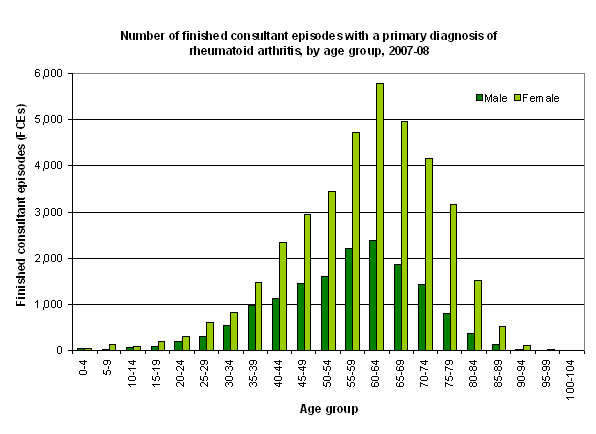IN THIS SITE...

- NHS Choices: Rheumatoid arthritis
- National Rheumatoid Arthritis Society
- Inpatient data
- Self Service
HES on... Rheumatoid arthritis
Rheumatoid arthritis is an autoimmune disease that affects about 350,000 people in the UK, according to NHS Choices. This article gives an overview of the condition and highlights related 2007-08 HES data.
What is Rheumatoid arthritis?
A body's immune system usually produces white cells and antibodies to destroy foreign substances, such as viruses and bacteria. In some people, the immune system mistakes its own tissue as foreign and attacks it, leading to inflammation. This is known as an autoimmune disease.
Rheumatoid arthritis is an autoimmune disease that causes pain, swelling and inflammation of the joints. The condition initially affects the joints of the hands and feet, but any joint may later become affected.
Who does it affect?
Rheumatoid arthritis mainly affects older people, although it can affect anybody. HES data for 2007-08 shows that, in England, those aged 60-64 were the most likely to be treated in hospital for rheumatoid arthritis.
 |
HES facts and figures
HES data for people treated in hospital for rheumatoid arthritis (primary diagnosis codes M05, M06, M080 and M45X in ICD-10) shows that:
- women are twice as likely to be treated as men
- over the past decade, the proportion of finished consultant episodes (FCEs) has increased by 51%
- overall, over the past decade there have been around 435,000 FCEs
- the highest proportion of FCEs were in the West Midlands and North West Strategic Health Authority, although there was no clear geographical pattern overall.
More information on this topic is available from NHS Choices here.

